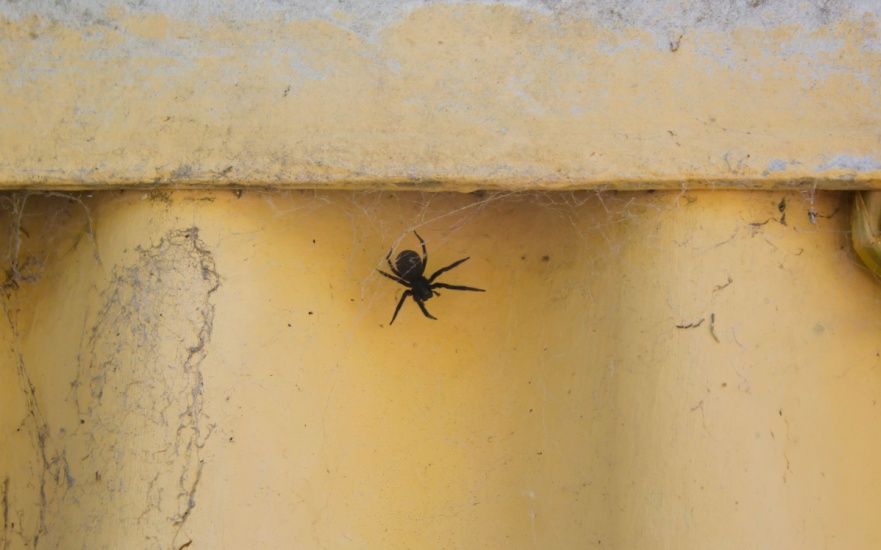Spiders are common household pests in Dallas, TX, and while most species are harmless, their presence can be unsettling—especially when they appear in bedrooms, closets, or basements. These spider prevention tips for Dallas homeowners are designed to help you protect your home using simple, effective strategies that actually work. Whether you’re dealing with occasional sightings or frequent web-building visitors, this guide will help you maintain a spider-free home year-round.
Understanding Spider Behavior in Dallas Homes
Before diving into spider prevention tips for Dallas homeowners, it’s important to understand why spiders come inside in the first place. Spiders are drawn to homes in search of food (insects), shelter, and quiet places to breed. They prefer dark, undisturbed areas like attics, basements, and storage rooms. Understanding their habits allows homeowners to take targeted steps toward keeping spiders out.
Spider Prevention Tips for Dallas Homeowners
1. Regular Cleaning to Eliminate Webs and Eggs
- Vacuum Frequently: Vacuum carpets, rugs, corners, and furniture to remove spiders, webs, and egg sacs.
- Dust Hidden Areas: Regular dusting eliminates spider hiding spots and their insect prey, reducing the chance of an infestation.
2. Decluttering Indoors and Outdoors
- Remove Clutter Inside: Keep storage areas tidy by eliminating piles of boxes, laundry, and miscellaneous items.
- Clean Up Outside: Clear leaves, wood piles, and debris from around your home’s foundation. Store firewood away from the house and off the ground.
3. Sealing Entry Points Around the Home
- Inspect Cracks and Gaps: Seal any cracks around windows, doors, and your home’s foundation with caulk or weatherstripping.
- Install or Repair Screens: Ensure that window and door screens are intact and free from holes to keep spiders and insects out.
4. Store Food Properly to Prevent Attracting Prey
- Use Airtight Containers: Keep pantry items and pet food sealed tightly to prevent attracting other pests that spiders feed on.
- Clean Kitchen Surfaces: Wipe down counters and floors to remove food crumbs and spills that draw insects—and by extension, spiders.
5. Manage Moisture Levels in Key Areas
- Fix Plumbing Leaks: Dripping faucets and pipes can create a moist environment that attracts insects and spiders.
- Use Dehumidifiers: Especially in basements or crawl spaces, maintaining low humidity levels discourages spider activity.
6. Use Natural or Chemical Spider Repellents
- Essential Oils: Spray peppermint, eucalyptus, or lavender oil mixed with water near windows, baseboards, and corners.
- Vinegar Solutions: A 50/50 mix of vinegar and water can deter spiders when sprayed in common entry points.
- Pesticides for Severe Cases: Use caution when applying chemical repellents—always follow instructions and keep them away from kids and pets.
7. Adjust Outdoor Lighting to Deter Insects
- Use Insect-Resistant Bulbs: Swap white bulbs for yellow or sodium vapor bulbs, which attract fewer insects.
- Reposition Lighting: Place outdoor lights farther from doors and windows to reduce insect and spider traffic near entrances.
Long-Term Spider Prevention for Dallas Homeowners
8. Schedule Regular Inspections
- DIY Checks: Inspect attics, basements, and crawl spaces for webs, egg sacs, and spider activity.
- Professional Services: Hire a pest control company annually to inspect and treat problem areas before infestations start.
9. Maintain Your Yard and Landscaping
- Trim Back Vegetation: Keep bushes and tree limbs trimmed back from your home’s walls and roofline.
- Remove Organic Debris: Clear leaf piles, mulch beds, and other yard waste where spiders may hide or breed.
10. Educate Everyone in the Household
- Promote Awareness: Teach family members how to keep living areas clean and free of clutter.
- Get Everyone Involved: A group effort makes it easier to maintain a spider-free home.
When to Call a Pest Control Professional
If you’ve followed these spider prevention tips for Dallas homeowners but still notice spiders, it may be time to call in a professional. Persistent infestations, sightings of venomous species like brown recluses or black widows, or repeated webbing around the home are signs that professional treatment is needed. A licensed pest control company can apply targeted treatments, seal off entry points, and offer ongoing maintenance to keep your home spider-free.
Stay Protected with Vinx Pest Control in Dallas
At Vinx Pest Control, we specialize in spider prevention for Dallas homeowners. Our team offers customized treatments, seasonal inspections, and proactive solutions to keep spiders and other pests out of your home. Whether you’re dealing with a single spider or a full-blown infestation, we’re here to help you take control of your home again.
Contact us today for a free quote or to schedule an inspection. We proudly serve Dallas and surrounding areas, including Plano, Frisco, and Richardson.



